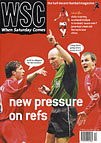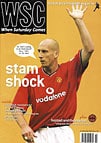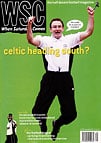 Belarus missed their two best players as Ukraine pipped them for a World Cup play-off spot. Paul Roberts explains why some saw sinister motives at work
Belarus missed their two best players as Ukraine pipped them for a World Cup play-off spot. Paul Roberts explains why some saw sinister motives at work
"It was treachery and disgraceful,” said the Belarus coach Eduard Malofeyev. He was referring to the performance of his two key midfielders, Oleksandr Khatskevich and Valentsin Belkevich, after his team’s 2-0 home defeat in the crucial World Cup qualifier against Ukraine on September 2. Khatskevich was substituted at half-time and Belkevich on the hour. The two players then refused to travel to Wales for the final qualifier (“still ashamed of themselves” according to Malofeyev) which a demoralised and weakened Belarus lost 1-0. This allowed Ukraine to snatch the group five play-off place at the death, thanks to a controversial late goal by Andriy Shevchenko in Poland.

